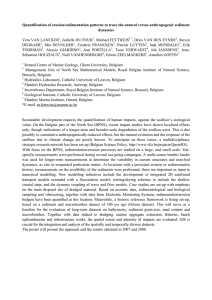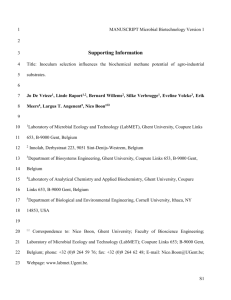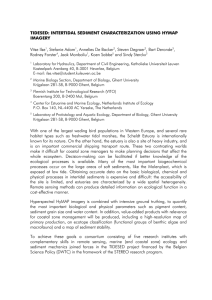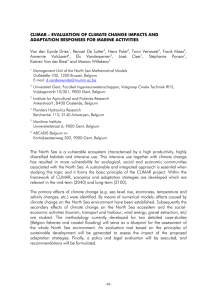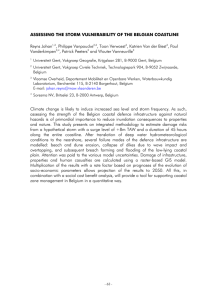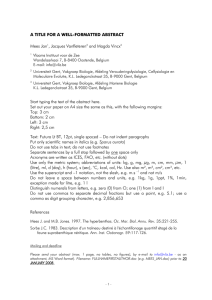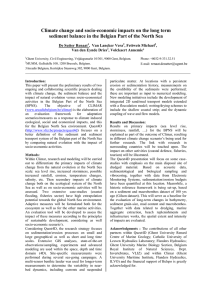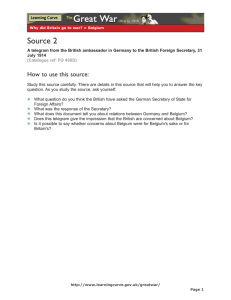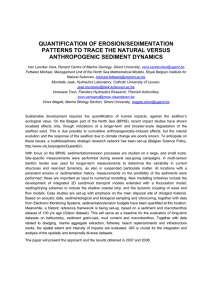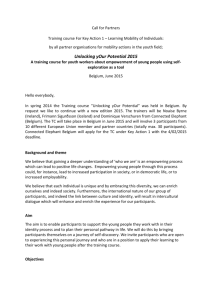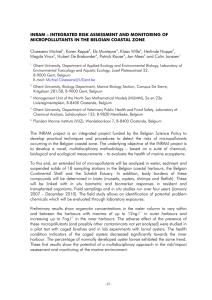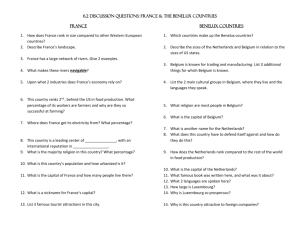Van Lancker Vera and the QUEST4D project team
advertisement
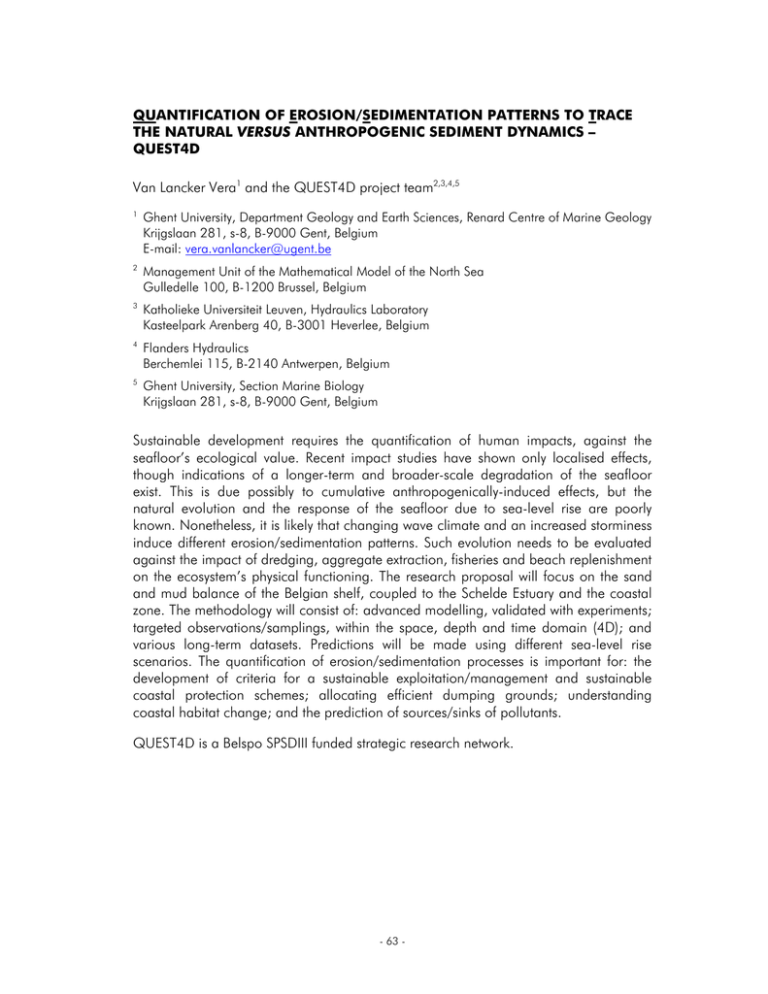
QUANTIFICATION OF EROSION/SEDIMENTATION PATTERNS TO TRACE THE NATURAL VERSUS ANTHROPOGENIC SEDIMENT DYNAMICS – QUEST4D Van Lancker Vera1 and the QUEST4D project team2,3,4,5 1 Ghent University, Department Geology and Earth Sciences, Renard Centre of Marine Geology Krijgslaan 281, s-8, B-9000 Gent, Belgium E-mail: vera.vanlancker@ugent.be 2 Management Unit of the Mathematical Model of the North Sea Gulledelle 100, B-1200 Brussel, Belgium 3 Katholieke Universiteit Leuven, Hydraulics Laboratory Kasteelpark Arenberg 40, B-3001 Heverlee, Belgium 4 Flanders Hydraulics Berchemlei 115, B-2140 Antwerpen, Belgium 5 Ghent University, Section Marine Biology Krijgslaan 281, s-8, B-9000 Gent, Belgium Sustainable development requires the quantification of human impacts, against the seafloor’s ecological value. Recent impact studies have shown only localised effects, though indications of a longer-term and broader-scale degradation of the seafloor exist. This is due possibly to cumulative anthropogenically-induced effects, but the natural evolution and the response of the seafloor due to sea-level rise are poorly known. Nonetheless, it is likely that changing wave climate and an increased storminess induce different erosion/sedimentation patterns. Such evolution needs to be evaluated against the impact of dredging, aggregate extraction, fisheries and beach replenishment on the ecosystem’s physical functioning. The research proposal will focus on the sand and mud balance of the Belgian shelf, coupled to the Schelde Estuary and the coastal zone. The methodology will consist of: advanced modelling, validated with experiments; targeted observations/samplings, within the space, depth and time domain (4D); and various long-term datasets. Predictions will be made using different sea-level rise scenarios. The quantification of erosion/sedimentation processes is important for: the development of criteria for a sustainable exploitation/management and sustainable coastal protection schemes; allocating efficient dumping grounds; understanding coastal habitat change; and the prediction of sources/sinks of pollutants. QUEST4D is a Belspo SPSDIII funded strategic research network. - 63 -
